Two masses A and B of 15 kg and 10 kg are connected with a string passing over a frictionless pulley fixed at the corner of a table (as shown in figure). The coefficient of friction between the table and block is 0.4. The minimum mass of C, that may be placed on A to prevent it from moving is:

10 kg
5 kg
zero
15 kg
The correct Answer is:A
,
Similar Questions
Two masses A and B of mass 15kg and 6kg are connected by a string passing over a friction pulley fixed at the corner of a table as shown in The coefficient of friction between A and table is 0.3 the minimum mass (in kg) of that must be placed on A to prevent it from moving is
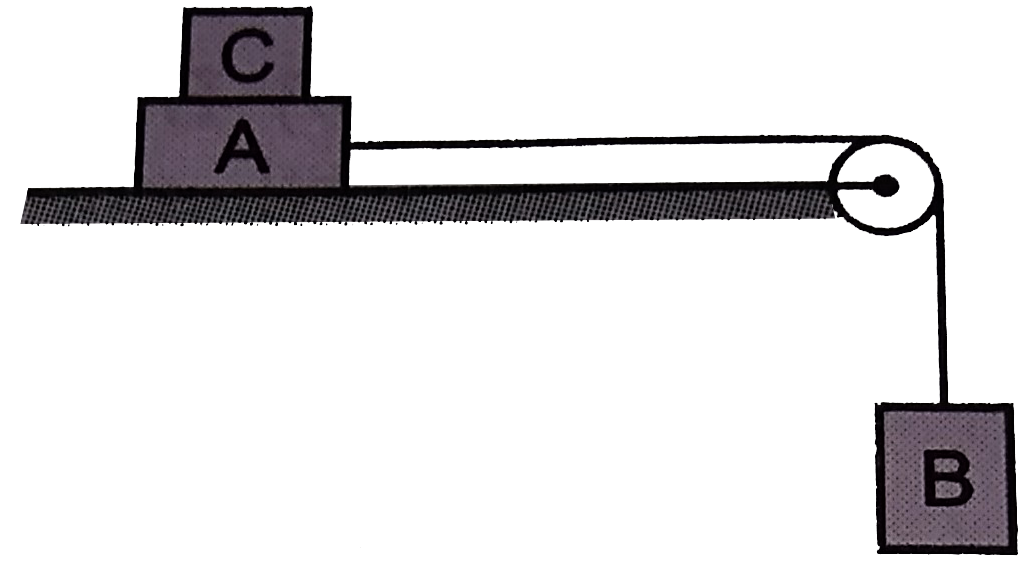 .
.
View SolutionTwo blocks A and B of respective masses 6 kg and 4 kg are connected with a string passing over a light friction less pulley as shown in the figure . The coefficient of friction between the block A and horizontal surface is 0.4 . Then the minimum mass of block C which should be placed over A to prevent it from moving is :
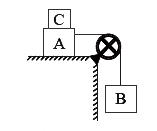
View Solution
Knowledge Check
Two mass A and B of 5 kg and 6 kg are connected by a string passing over a frictionless pulley fixed at the corner of table as shown in figure-2.179. The coefficient of friction between A and the table is 0.3. The minimum mass of C that must be placed on A to prevent it from moving is equal to : (Take g=10ms2)
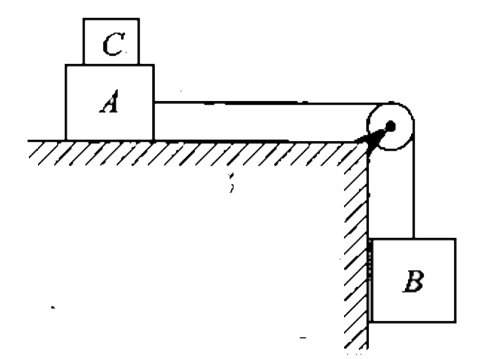 A15 kgB10 kgC5 kgD3 kg
A15 kgB10 kgC5 kgD3 kgTwo masses A and B of 10kg and 5kg, respectively , are connected with a string passing over a frictionless pulley fixed at the corner of a table as shown. The coefficient of static friction between A and the table is 0.2. The minimum mass C that should be placed on A to prevent it from moving is equal to
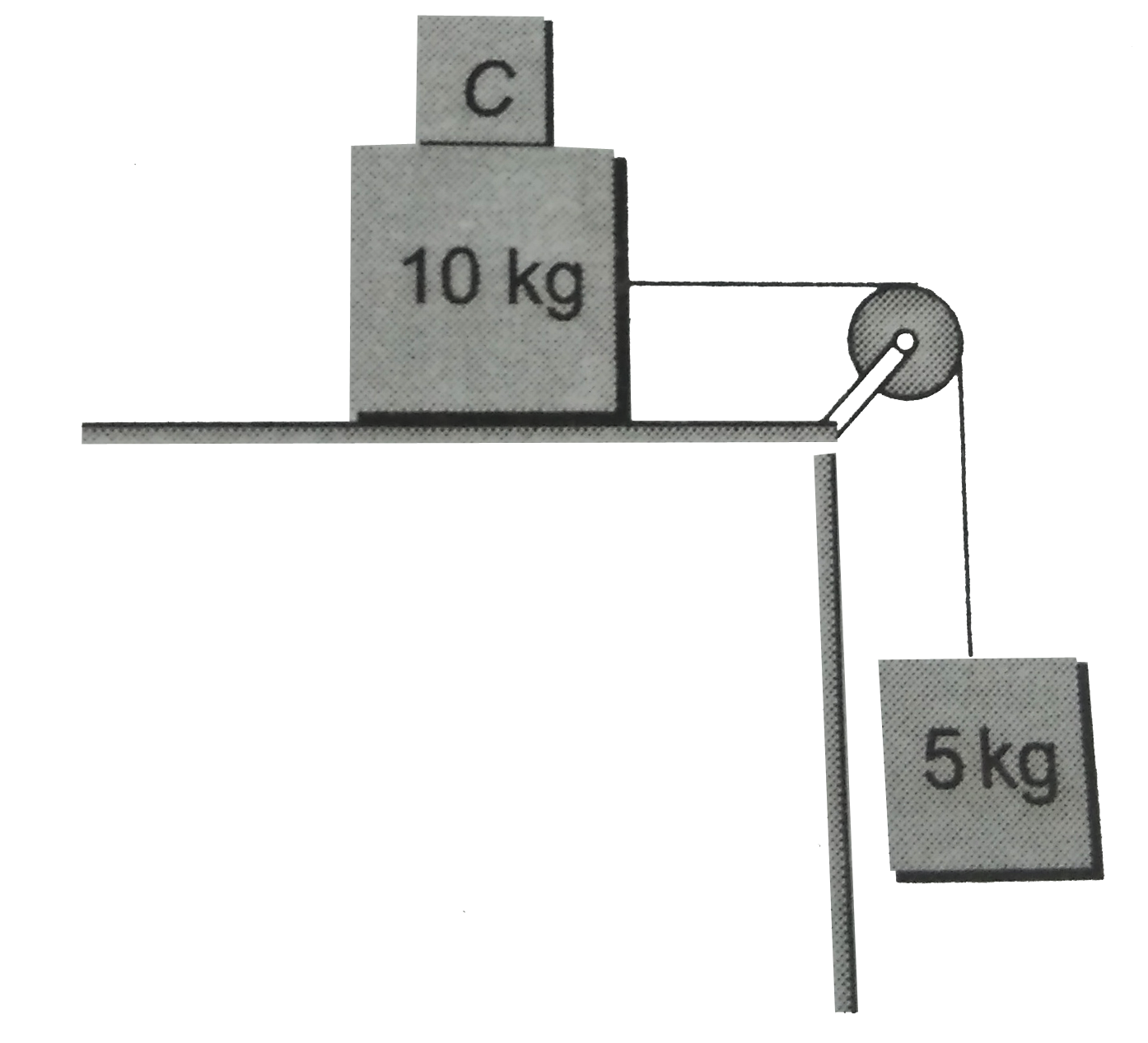 A12kgB5kgC10kgD15kg
A12kgB5kgC10kgD15kgTwo masses of 8kg and 4kg are connected by a string as shown in figure over a frictionless pulley.The acceleration of the system is
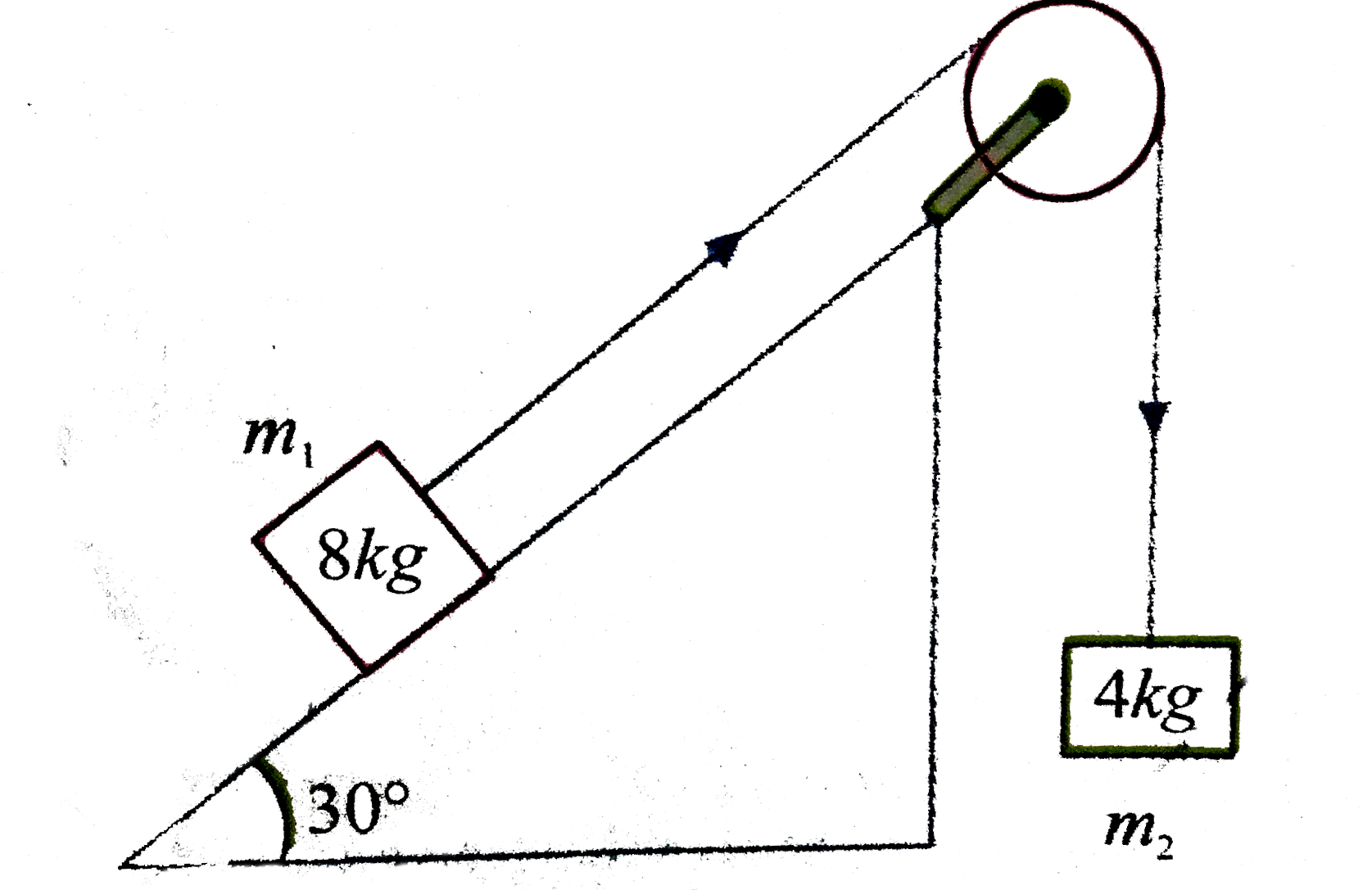 A4m/s2B2m/s2CzeroD9.8m/s2
A4m/s2B2m/s2CzeroD9.8m/s2
Four blocks are connected with a.string passing over a frictionless pulley fixed at the corner of a table as shown in figure. The coefficient of static friction of A with table is 0.50. The minimum mass m of the block, so that blocks do not move should be ...... kg.
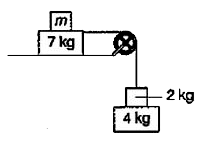
View SolutionTwo masses of 8 kg and 4 kg are connected by a string as shown in figure over a frictionless pulley. The acceleration of the system is
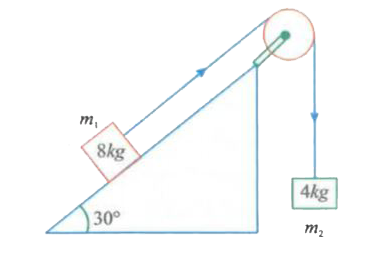
View SolutionTwo blocks of masses of 40 kg and 30 kg are connected by a weightless string passing over a frictionless pulley as shown in the figure.
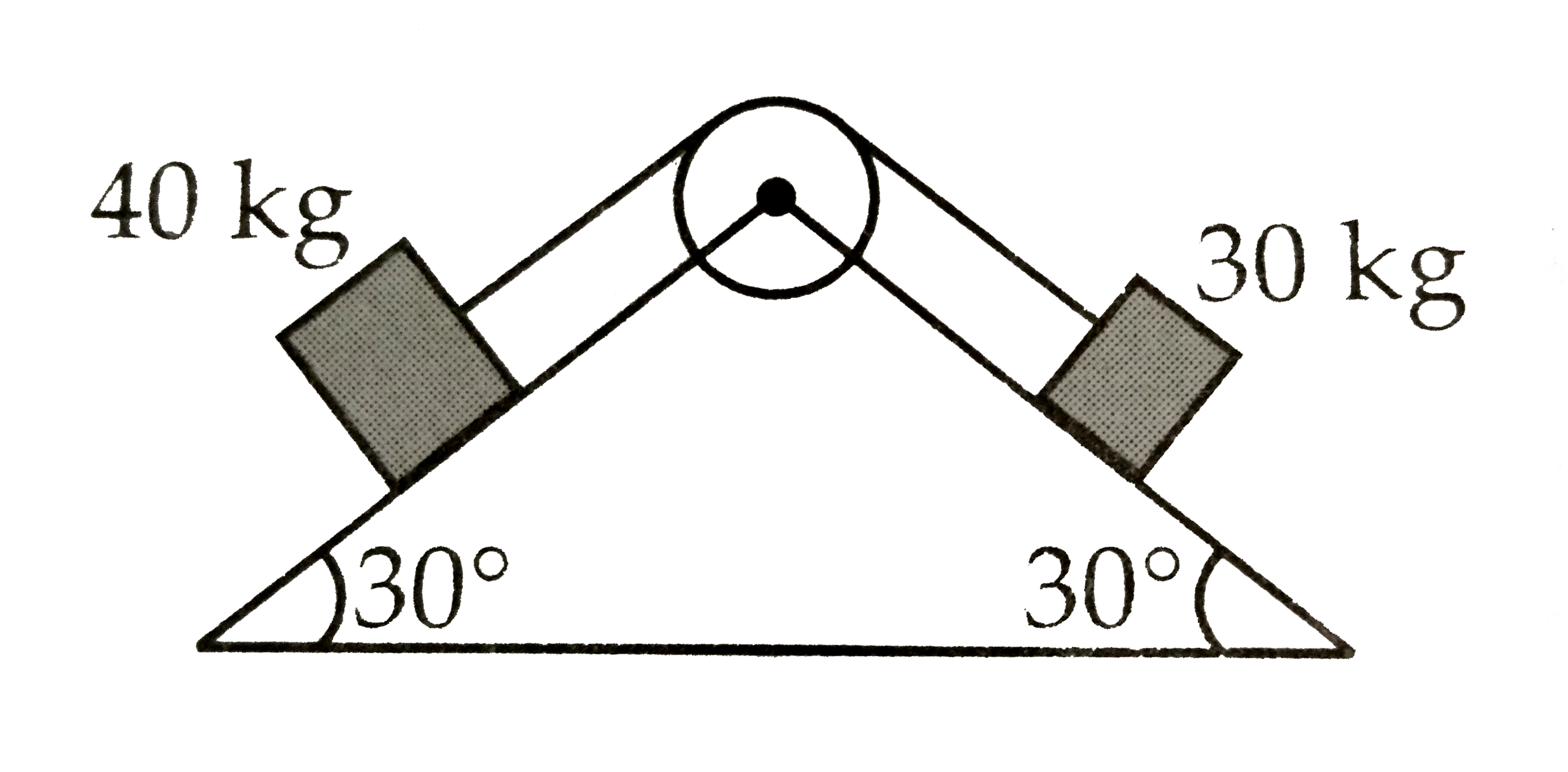
View SolutionTwo masses of 4 kg and 5 kg are connected by a string passing through a frictionless pulley and are kept on a frictionless table as shown in the figure. The acceleration of 5 kg mass is
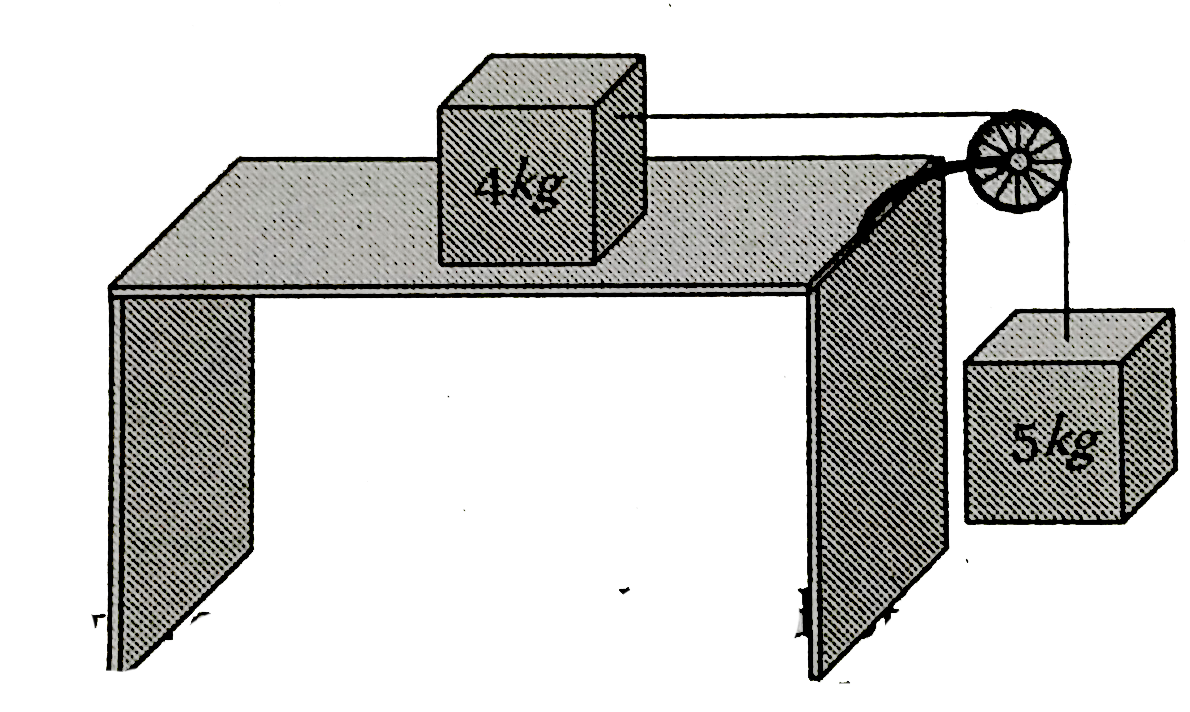
View SolutionTwo blocks of masses of 40 kg and 30 kg are connected by a weightless string passing over a frictionless pulley as shown in the figure.

View Solution

